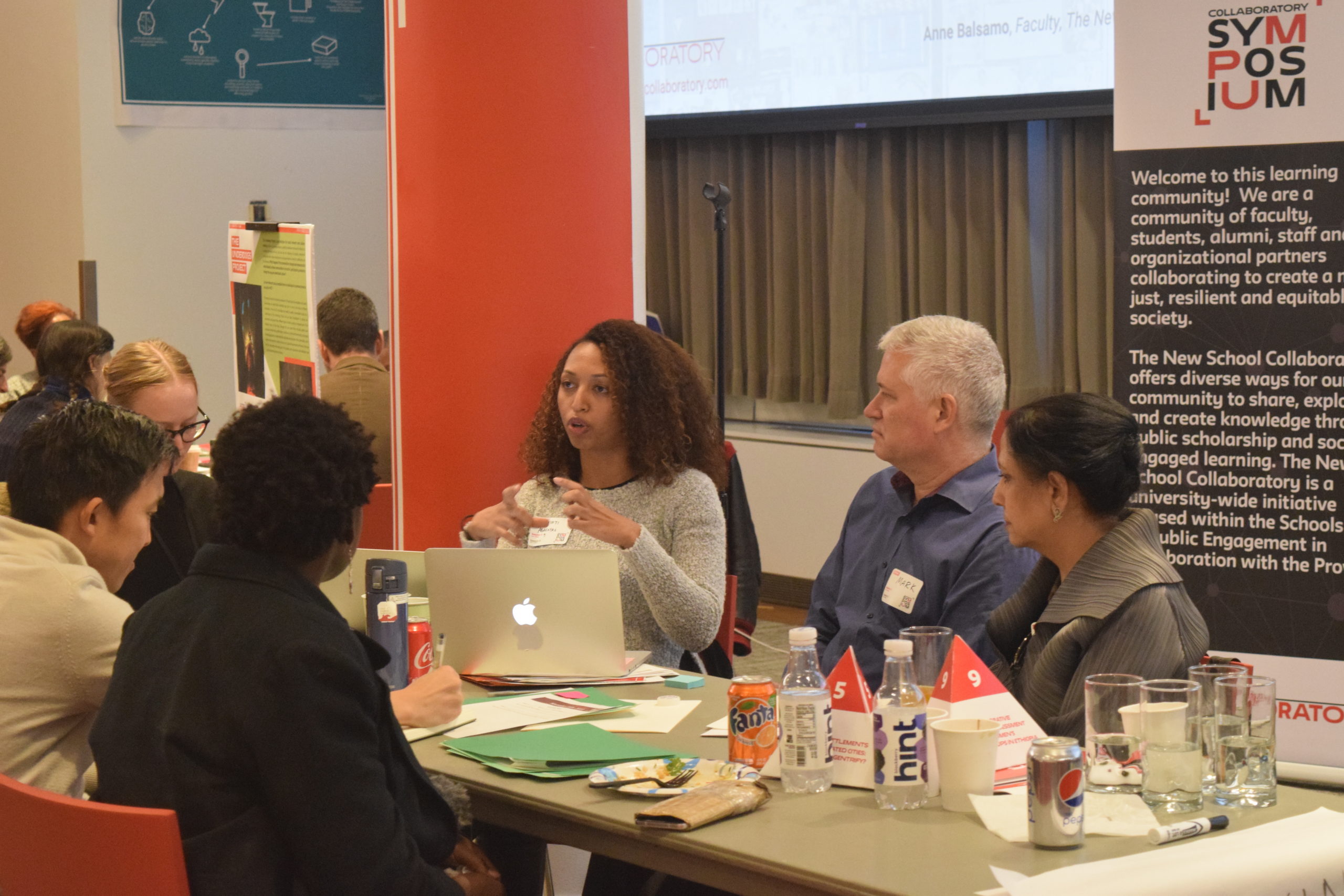Sessions “Global Urban Futures: Learning Networks of Scholars & Activists to Transform Conversations around Policy” and “Collaborative Community Assessment with Women’s Self-help Groups” shared a roundtable. The discussion brought together scholars who have worked in different contexts but found common ground in their emphasis on community-based approaches to their work.
The roundtable featured facilitator Geeta Mehta, faculty at Columbia University, president of Asia Initiatives, and co-founder of URBZ. Her research focuses on Dharavi, Mumbai, one of the largest informal settlements in Asia.
Dharavi, known as a city within a city, has been engulfed by the rapidly expanding Mumbai, and the value of the land is vastly increasing. The area has been characterized as a slum, and aerial images of the space reinforce this description, hiding the high degree of social capital in the city which only becomes visible on the ground. As Mehta emphasised, Dharawi has high value because people find use for their skills. The city village has a high employment rate, different religious spaces exist side by side, and there are a great number of mico-enterprises including women’s guilds. The significance of Dharavi to Mumbai’s economy is undervalued by developers and the government, whose ideals of value leave out community and social capital. Urban spaces tend to reinforce old hierarchies and social prejudices that overlook the true value of informal settlements such as Dharavi. Mehta reflected on how inhabitants in Dharavi react to these new developments: “Why do we need a developer to come and bulldoze a community and gentrify, why can’t people self-gentrify and reap the benefits of gentrification?”
From the second roundtable group, Mark Johnson, assistant professor at the Julien J. Studley Graduate Programs in International Affairs (SGPIA), and Gifti Abakoyas, alumna of SGPIA, spoke about the Consortium of Self Help Approach Promoters (CoSAP). CoSAP is an umbrella organization consisting of a number of nonprofits promoting a Self Help Group Approach. As Gifti explained, CoSAP promotes a version of empowerment that “is not an external donation-based empowerment, but resources that come from within the community itself.” By bringing together groups of 15-20 women, these projects create spaces for women in communities to talk about their experiences and to empower them to confidently share their stories. What the facilitators emphasized was the incredible simplicity of their approach and the immense impact these groups have on the lives of the women involved. The creation of a space to bring these women together created a sense of community, and increased their feelings of confidence, support, and empowerment.
Merging these roundtables showed the commonalities across the work of these scholars: the importance of community, the value of informal spaces, and the significance of coming together in conversation. The discussion during the symposium was itself a manifestation of this. In the spirit of the Collaboratory, the participants agreed to continue the exchange beyond the Centennial Symposium.
This article was written by Julie Juel Andersen. Julie is a student in the MA International Affairs program at The New School. Her concentration is conflict and security, and her research focuses on climate change security and cybersecurity.

